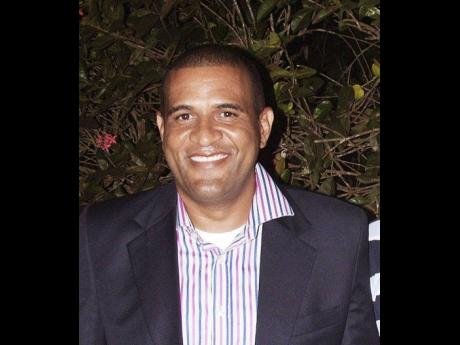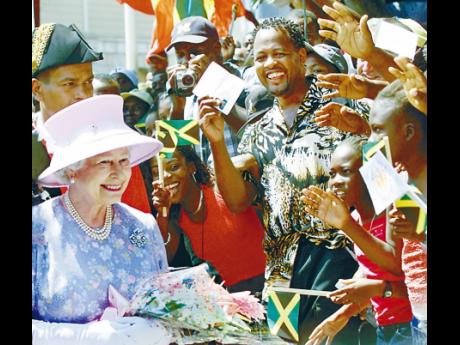Jolyan Silvera | Ready, set, republic by Jamaica 70
In the months leading up to Jamaica’s 60th year of Independence, a renewed sense of urgency emerged for Jamaica to become a republic. Understandably so, as it symbolises and affirms maturity in our sovereignty. But, after 60 years, are we mature as a people?
The missed opportunity to transition to a republic prior to the Queen’s diamond jubilee as head of state for Jamaica, especially coming off the heels of the euphoria of the Jamaica 50 celebrations; is an indictment on us all. The inroads lost in the last decade must be swiftly, intentionally and specifically recalibrated to set us on a path to achieve republic status by Jamaica 70, ending the British monarchy as head of state of Jamaica.
Our economic reality is indicative of poor foreign policy and trade relations with our head of state, and strong dependency on debt capital to run the operations of the country. As it stands today, Jamaica’s fiscal policy is to make the country attractive for debt-raising purposes, all at a cost to the social welfare of our people.
The lack of adequate fiscal space in the national Budget for sustainable social intervention is the direct reason for the high level of crime in Jamaica; and by extension, suggests that it is the only antidote.
Philanthropy specific to working capital needed to transition sustainably to a republic; and a new trade relationship, with some element of exclusivity, which can once again allow Jamaica to compete viably and earn much-needed foreign exchange through exports.
With the advent of Brexit, and the fact that the Queen remains the head of State, Jamaica is in a unique position to strengthen relationship with Great Britain, to harness opportunities for both philanthropy and a new trade relationship.
The path of least resistance to secure those opportunities lies in a good dose of humility and penitence, which I believe serves the national agenda best at this time, given our current economic and social circumstances.
Unceremonious announcements about Jamaica’s intent to become a republic, further underpinned with aggressive calls for reparations for slavery, are antagonistic to the short- to medium-term greater good. Accordingly, it would be in line with the Jamaican adage, ‘You haffi tek time tek you han outta lion mout’.
The opportunity to take advantage of this unique position that Jamaica finds itself in at 60 years independent, technically remains available, and is worth serious and tactical exploration.
BACK-OFFICE SYSTEMS AND SOFT COSTS
The Government should strongly consider the use of financial resources for the modernisation of our back-office systems and soft costs needed to support the human resource framework for Jamaica as a republic, and in doing so:
1)Put our law makers to work – Adjust all existing laws for efficient enforcement, in order to be used to effect social change and a sustainable tool to fight crime and ;
2)Invest in back-office support – Acquire and expand human and administrative resources and facilities to remove the bottlenecks in the judicial and penal systems through the creation of more courts; more rehabilitation prisons; and more social welfare support in the form of gender-specific boarding schools, in lieu of boys’ and girls’ homes.
GROWTH STRATEGIES FOR THE NEW REPUBLIC
Sugar, cement, banana, coconut, cocoa (chocolate), bauxite and alumina are some of the main industries that enhanced Jamaica’s GDP from the inception of Independence. They were used as geopolitical tools to create mutually beneficial partnerships in foreign trade, but are now either completely wiped out, sold to foreign entities in a way that levies little or no direct benefit to the individual Jamaican, or sold on the futures market in order to pay the country’s debt today with natural resources earmarked for tomorrow, a recipe for fast and furious depletion of our natural ores.
The country must adopt a tangible growth strategy that removes dependency on these traditional industries, by having the legislature create an investment climate for Jamaica to become a financial services hub within the global space. This should make it very attractive to the top 25 global banks to be domiciled in Jamaica; and, by extension, will draw large Fortune 500-type global companies to invest and do business.
As member of parliament for Western St Mary, I called for Jamaica to become a republic during the 2014 Sectoral Debates. The P.J. Patterson-led administration of 1994 created the first draft legislation for Jamaica to become a republic, which eventually was passed by the Lower House of Parliament, but was never successful at receiving the full two-thirds support of the Upper House of Parliament.
Once the legislation is passed by both the Lower and Upper Houses of Parliament and enjoys the full support of the Opposition of the day, it will then be voted on by the people by way of a referendum.
This is an entrenched requirement within the Constitution for Jamaica to become a republic.
I am optimistic that with steady and tactical execution, Jamaica will become a sustainable republic by 2032, our 70th year of Independence; and along with it, a renewed sense of identity, a renewed commitment to economic independence, and fortified maturity as a people.
Jolyan Silvera is a former member of parliament and chairman of the Founders Group, a member of the PNP. Please send feedback to columns @gleanerjm.com



